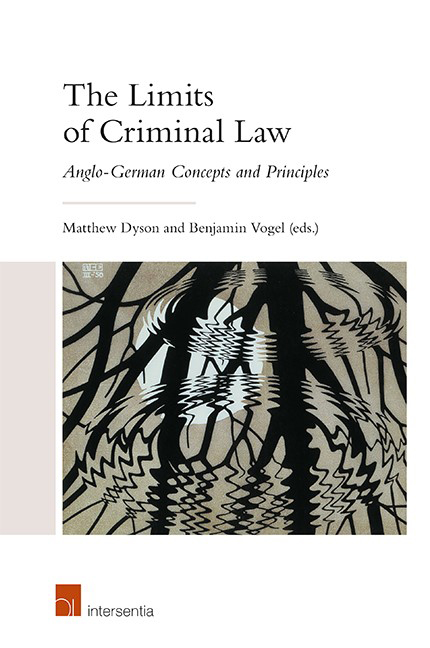Book contents
- Frontmatter
- Preface
- Contents
- List of Cases
- List of Abbreviations
- List of Contributors
- Chapter 1 Introduction
- PART I CORE PRINCIPLES OF CRIMINAL LAW
- PART II CRIME AND TORT
- PART III CRIME AND MEDICAL
- PART IV CRIME AND REGULATION
- PART V ADMINISTRATIVE SANCTIONS
- PART VI ALTERNATIVE ENFORCEMENT
- PART VII COUNTER-TERRORISM
- PART VIII CRIME AND INTELLIGENCE
- PART IX CONCLUSION
- Index
- About the Editors
Chapter 12 - Criminal Law as a Regulatory Tool
Published online by Cambridge University Press: 11 February 2021
- Frontmatter
- Preface
- Contents
- List of Cases
- List of Abbreviations
- List of Contributors
- Chapter 1 Introduction
- PART I CORE PRINCIPLES OF CRIMINAL LAW
- PART II CRIME AND TORT
- PART III CRIME AND MEDICAL
- PART IV CRIME AND REGULATION
- PART V ADMINISTRATIVE SANCTIONS
- PART VI ALTERNATIVE ENFORCEMENT
- PART VII COUNTER-TERRORISM
- PART VIII CRIME AND INTELLIGENCE
- PART IX CONCLUSION
- Index
- About the Editors
Summary
THE FAIRYTALE: CRIMINAL LAW AS ULTIMA RATIO
According to a widely accepted principle in German criminal jurisprudence, criminal law should be resorted to only when other, less intrusive instruments are not available: criminal law as ultima ratio. Furthermore, to merit criminal sanctions, the wrongdoing in question has to be a breach of a rule that is of fundamental importance for the co-existence of people within a civilised and democratic society. Accordingly, when we think of criminal law, we usually think of conduct that grossly invades personal autonomy such as, for example, the offences of murder or rape. In fact, there is a widespread assumption that offences of this kind constitute criminal law as it should be. Other kinds of offence, such as speeding or other road traffic offences, insider trading and market manipulation or cruelty to animals, are seen as more or less problematic deviations from the proper type of criminal law offences.
The two dogmas mentioned above can be found in nearly every textbook and commentary on German criminal law. But upon closer scrutiny, the concept of criminal law as an instrument to react to conduct that deserves punishment because it is wrong per se is in fact not the standard case of the use of criminal law, but a rather exceptional one. In reality, criminal law is not an instrument to react to breaches of elementary norms of social life, but is rather a response to non-compliance with a staggering amount of behavioural norms that are set by civil law and administrative law. In fact, almost every statute in Germany contains criminal offences and/or quasi-criminal offences, which are today known as Ordnungswidrigkeiten (regulatory offences) and have a history that dates back to the nineteenth century at least.
Furthermore, it has to be borne in mind that for the legislature, criminal law is not ultima ratio but is quite often prima ratio. When there is a problem, whether drug abuse, misbehaviour by players on the financial market or inappropriate behaviour towards animals, criminal law is seen as – at least part of – the answer And the use of criminal law as an instrument to secure and enforce certain behavioural standards is in no way limited to cases where no other instruments are available.
- Type
- Chapter
- Information
- The Limits of Criminal LawAnglo-German Concepts and Principles, pp. 235 - 262Publisher: IntersentiaPrint publication year: 2020



